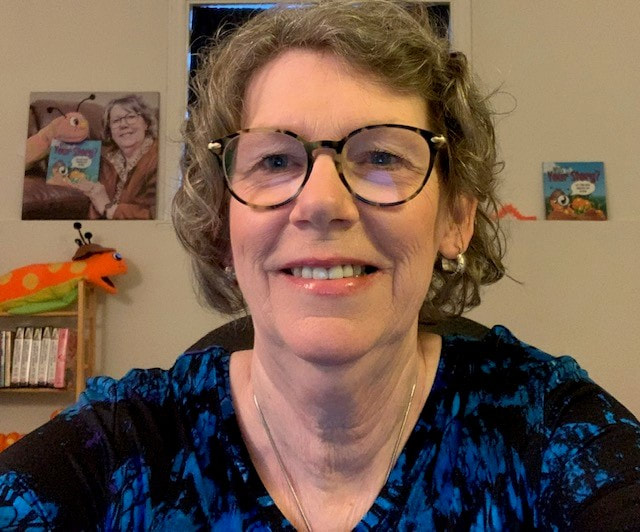|
Greetings to all my blog readers who celebrate the upcoming Christmas holiday and to those who do not. I’m currently sipping on a candy cane hot chocolate as I compose a special brief, gift blog for you.
Christmas is a time that we think about gifts. Birth parents have given the gift of life. For many reasons, birth parents sometimes select an alternative plan for their birth child. They may have a relative that can give baby the love and care of a kinship family. When they do not, they may consider adoption. Adoptive parents have known grief and heartache. Rising up from the depths of their loss they realize that a child that is already born, or soon to be born, needs them, and answer that call, offering the gift of their love. Their adoption journey has begun, and it is often a challenging road to becoming parents. Newborns, children, and youth, born to unprepared birth parents have known loss. There is a trauma seed that has been planted in them, and their individual and unique life experiences determine its rate of growth, or can even render it dormant. Kinship and adoption families offer love to mitigate the impact of their loss and trauma. Everyone in each of these scenarios has something to share, and that is the gift of love. ❤️ Love gives birth parents the strength to look at the needs of their children above their own. ❤️Love gives adoptive and kinship parents the strength to give children a family. ❤️Love gives children the knowledge that they have two families, birth and adoptive/kinship. ❤️The love of family is the best gift of all! Merry Christmas to all who celebrate. 🎄 ‘See’ you all next year.
0 Comments
Welcome back to Blogville everyone, thanks for joining me in a hot beverage, for me a lemon ginger tea, and another dose of my thoughts. Today’s thoughts are about assumptions in adoption. It seems commonly felt that a part of one’s identity is looking like their family members. Often in my life I felt that people would tell me how much I looked like my mom as a way of reassuring me that being adopted didn’t ‘show’.
This type of attitude is often a challenge for me. When one does not physically resemble their adoptive family members, as is usually the case in intercultural adoptions, it seems to inspire comments from others. Even when it is a cultural match, it still seems to welcome comments from others. This brings out many emotions for me as the comments are often confusing for young children. There are people who actually look like their dogs but you don’t hear people saying, ‘wow your German Shepherd has many of your features, the breeder did a great matching job!’ As an example, take the person sitting on a bench at the mall, relaxed, and just people watching. Say they see a child of Asian descent come out of a book store with their Caucasian parent. Seriously, you can literally see the little smile of approval as they silently applauding that Caucasian adoptive parent for ‘saving’ that poor Asian child. Silently they watch that parent/child interaction and think how hard, and expensive, it must have been to have gone through an international adoption. The bench sitter smiles and is just about to comment, likely words of praise for having ‘saved’ this little child, when the other parent comes out of the book store to join them. Suddenly the bench sitter realizes that the child’s other parent is of Asian descent. So many people still “judge that book by its cover”. For example, when people see a mixed race family they automatically assume ‘adoption’. Not only adoption but what I call, ‘good deed adoption’. I believe people think of International adoption as some kind of humanitarian mission instead of simply as a way to grow their family. Personally, I don’t think these internationally adopted children feel like they have won some kind of prize, or family lottery. I think they not only feel the loss of their birth parents, but also the loss of their birth extended family members, and additionally, they likely feel the loss of their entire country. Imagine, thinking no one in your whole country wanted you or could look after you. Interestingly, when your skin colour matches your parent’s skin colour you are not immediately recognized as an adopted person. I remember people telling me how much I looked like my mother, and that the agency had done a great job matching us. I hate to break it to people but physical resemblance is not necessarily a consideration when matching children and adoptive families. I also hate to be the one to inform folks that, in my personal case, the worker simply called my mom, gave her my age and gender, and asked her if she would be interested. To the best of my knowledge, no photos or physical descriptions were exchanged between the agency and my prospective adoptive parents prior to meeting my new mom and dad. The first time my mother laid eyes on me was on the day the worker dropped me off, had lunch, and left to drop off another child with another family. I think you would be surprised to learn how many people think that workers try to disguise a child’s status as an adopted person by making sure they look as much like their adoptive family as possible. That simply is not true. In my career as an adoption worker, I have worked with many birth mothers who actually looked for qualities in prospective adoptive families that were opposite to the type of family they grew up in. For example, a birth mother who was raised as an only child will sometimes only consider families that have an existing child. They might only consider families who are active, or families who like to travel, and even families where the mom does not work outside of the home. Personally, I have never had a birth mother ask me to look for adoptive family where the child will grow up looking like the adoptive parents. Sure, things like skin colour might be considered by birth parents, but in my experience they just wanted to make sure their child did not ‘stand out’ as having been adopted. Older children who are being considered for adoption have the opportunity to make a ‘wish list’ of the type of family profiles they would like to consider. Their wish lists often included things like if the prospective families had pets, if they had other children, what they liked to do for fun, if they liked music, or if they knew how to play checkers. In my experience these children and youth were not worried about looking like their new parents, they were more focused on being accepted by them and by how they would have fun as a family. Sometimes it was as simple as whether or not they would have their own room or whether or not there would be someone there when they got home from school. I have never met a child or youth whose wish list included, ‘I don’t want to look adopted’. Realistically, there are many examples of people’s judgement of families in general, not just adoptive ones. For example, I’ve heard things like, “I don’t know what happened to her, born to a family of musicians and she is tone deaf.” Or “Funny how he is the only kid who enjoys participating in sports in that family.” Having been in their shoes as an adoptee, when I was preparing children and youth for adoption placements as a worker, I would let them know that everyone has an opinion about families in general, and especially about kinship and adoptive families, but that the only opinions about their adoption and their adoptive family that really count are their own. I hope it helped prepare them for the people who are judgmental and opinionated in our society, being adopted can be hard enough. Thank you for joining me today in Blogville, it makes me so happy when you drop by. Please feel free to leave a comment here, or send me your comment privately through my email, [email protected] ‘See’ you next time. |
Read More
July 2024
Categories |



 RSS Feed
RSS Feed